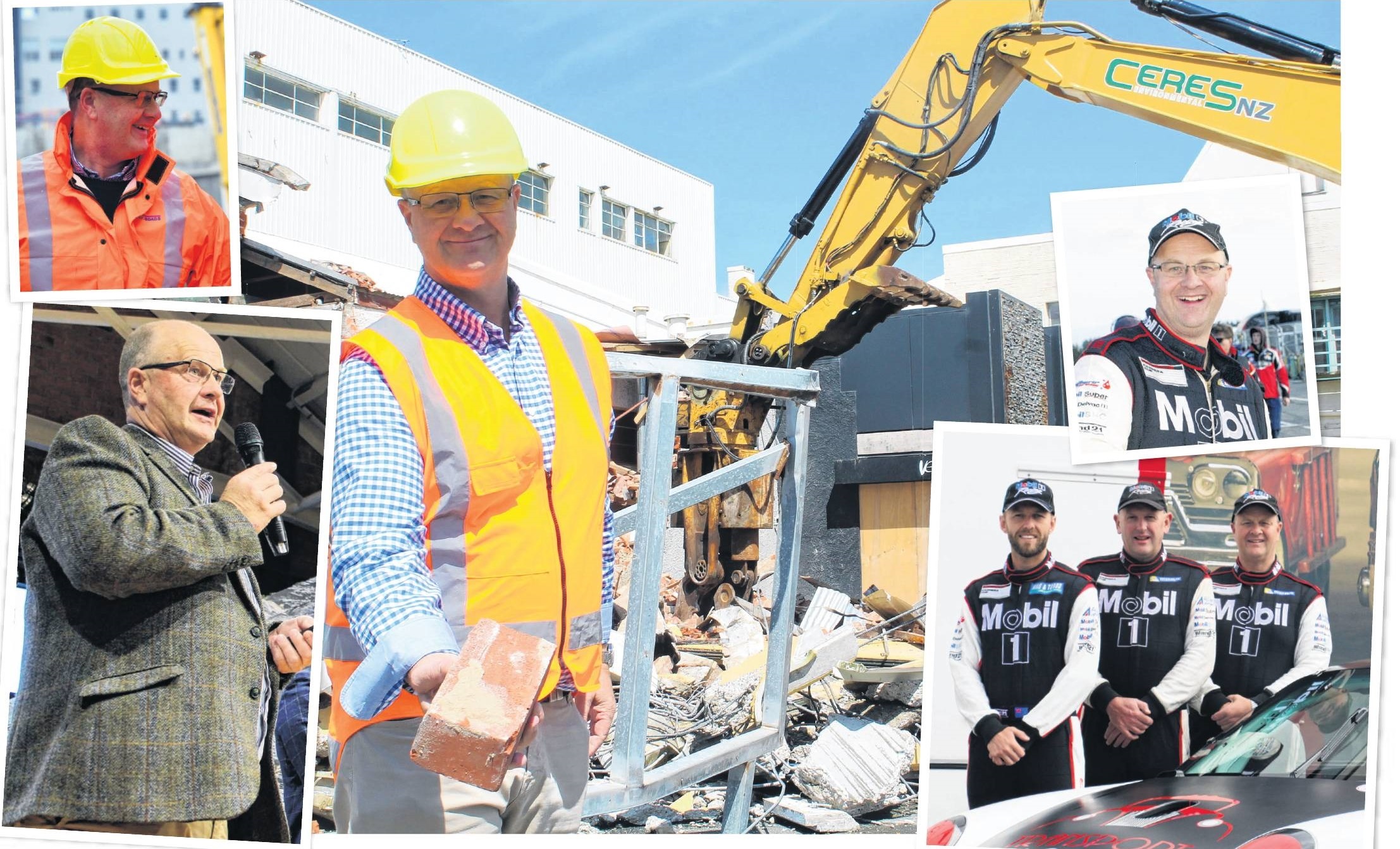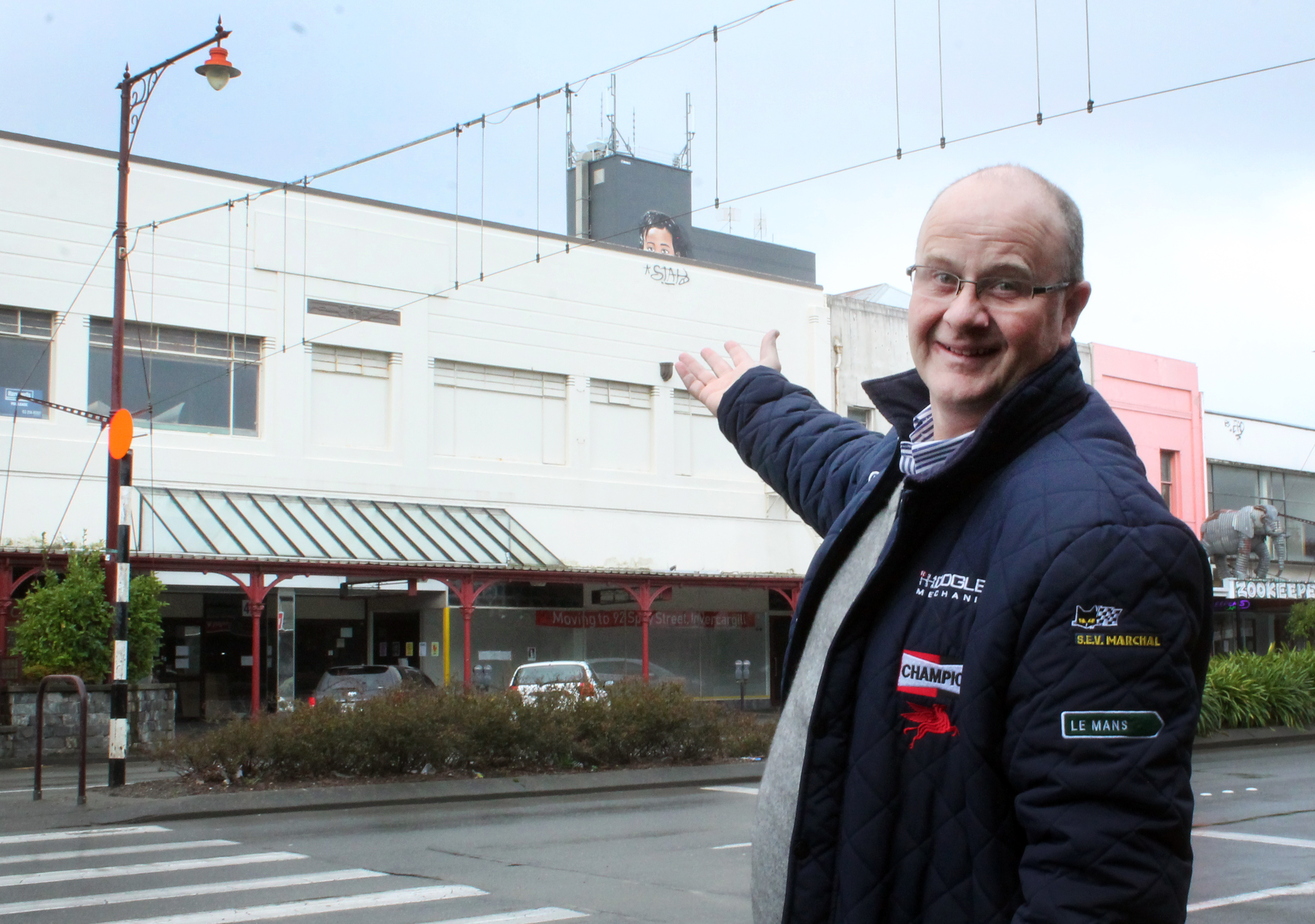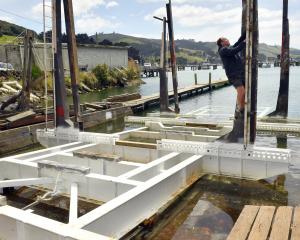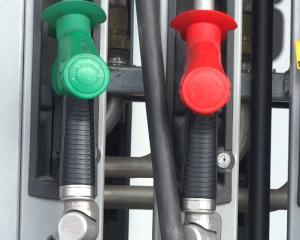
Change is in the wind in Invercargill as the city centre undergoes a massive redevelopment. Otago Daily Times Business Leader of the Year Scott O’Donnell talks to business editor Sally Rae about why it needed to happen - and about doing business in the South.
When Scott O’Donnell waved goodbye to Invercargill as a teenager, he never intended to return.
In his words, the country’s southernmost city was "too small town-ish" and he was eager to experience the bright lights of bigger city life.
But tragedy later intervened with the untimely death of his brother-in-law, and he was summonsed back to the South to join H W Richardson Group, the family business of his wife Jocelyn (Joc).
Southland is now very firmly home to Mr O’Donnell (55), who is spearheading the $160 million redevelopment of Invercargill’s CBD, which he describes as a "game-changer" for the city.
In true Southland style, and very much continuing that of his father-in-law, the late Bill Richardson, he is not one who is comfortable about accolades - "it’s not really me" - but his contribution to the South has been, and continues to be, immense.
Mr O’Donnell was born and raised in Invercargill. After gaining a commerce degree from the University of Otago in 1987, he worked for Dunedin accounting firm Arthur Young and completed a marketing course while working fulltime.
Shortly after completing that course, he moved to Wellington and worked for New Zealand Post briefly before it New Zealand Post Office was split into state owned enterprises NZ Post, Telecom and PostBank.
After a further five years gaining accounting and management experience, he began his OE, working in the banking and telecommunications sector in the United Kingdom, before returning and working in Christchurch for tech entrepreneur Dennis Chapman.
At Christmas in 1995, Mr O’Donnell returned to Invercargill with his wife, at the request of his father-in-law, following the death of Mr Richardson’s son Harold - the heir apparent to run the family firm - in a car crash in September that year, aged 28.
H W Richardson Group is a Southland success story with a long and proud association with the region, beginning when the Richardson family started in the carriage business in 1878 and moving into construction and later transport. Bill Richardson was a broken man after the death of his son, although he kept up appearances, Mr O’Donnell said.
Mr O’Donnell fulfilled a wide range of managerial roles in the group between 1996 and 2005, and he described his father-in-law as a great mentor.
"I’m a qualified accountant, I learned more about accounting ... from my father-in-law who left school at 15 to become a carpenter," he recalled.
Mr Richardson, who "knocked all my corporate edges off pretty quickly", was a very unassuming man. He did not like to be seen as flashy; he had a brand-new Mercedes parked in his garage that he would only drive in the dark so people could not see him driving it.
He was very good at structure and he was also an excellent communicator; he did not send emails - he talked to people instead. Mr O’Donnell had learned quickly it was far better to pick up the phone or, even better, catch up with someone in person over a coffee, instead of sending an email - and that was something that he believed was lost in the modern world.

But during his 10-year tenure in the role, the group doubled in size and became a national player in the petroleum, rural transport and waste sectors. Staff numbers grew from about 800 at the time of Mr Richardson’s death to about 2500, and it now also had a presence in Australia.
Mrs O’Donnell was also heavily involved in the family business and spearheaded the redevelopment of her father’s truck collection, resulting in Bill Richardson Transport World, which opened to the public in late 2015.
She was very capable and also a very good mother to the couple’s three children while her husband was not at home much, Mr O’Donnell said.
After retiring from the managing director role, Mr O’Donnell took on the role of chief executive of the group’s property company and latterly he has been group’s acting chief executive.
As well as being a director of various companies in the group, Mr O’Donnell has had various governance roles; at present he is chairman of Blue Sky Pastures (previously known as Blue Sky Meats) and on the board of MotorSport New Zealand.
Governance, he said, was "another problem for NZ Inc". Everyone had read "the governance book" and would go to meetings, questioning if the mix on the board was correct, and whether the respective business had a spam policy. "Anyone think about the customer?" he asked.
That was a fundamental challenge in business. He described himself as customer-driven, saying without the customer, a business had nothing. In the modern world, health and safety was put first but there was no need for health and safety if there was not a customer. Dealing with compliance regulations also limited time spent with customers, he said.
Another problem he saw was that people with higher education wanted "every bit of information on a topic known to man" before they made a decision, but, by that stage, the opportunity had often gone.
People with less education often had better connections between mind and gut, and he liked working with those people. Making decisions early was something that had been key at H W Richardson Group; they might not always be correct, but if made quickly, they could be changed "tomorrow".
Mr O’Donnell has spearheaded the redevelopment of Invercargill’s CBD, which he said aimed to put the heart back into the city. The project has been cited as having the potential to boost Southland’s real GDP by about $48 million a year.
He said his and Mrs O’Donnell’s desire to see change dated back to when they initially returned south and the city was "on another of its death spirals". The Tiwai Point aluminium smelter had finished a big upgrade and people were leaving town, and it was before dairy conversions started in the area.
Driving through the city, they thought it looked "worn out" and, in their first year, they tried unsuccessfully to get a project up and running to paint the buildings in the main street. So they "stopped trying to fix that stuff and got on with business".
Mr O’Donnell described the redevelopment as "game-changing". The city had "phenomenal sporting facilities" but it did not have the base infrastructure where people could meet, greet, shop, eat "and just have good times".
The project had seen a High Court injunction, Covid-19 lockdowns and issues with building supplies - "you probably couldn’t get more of a perfect storm" - but he was looking forward to the first stores being due to open about the middle of next year.
Invercargill was a very easy place to live. It took four and a-half minutes to drive to work - "rush hour takes five" - you could pick up the phone and get something done quickly, people did not ask for credit references, and you could also get around people quickly, he said.
Southlanders were not grandiose people, nor did they seek the limelight. They did not have massive aspirations but, at the same time, what they did, they tended to do very well.
They were good people to work with, humble and hardworking, "and everyone’s got something interesting in their garage", whether it was cars, bikes or art collections.
Motorsport - including owning racing cars - was Mr O’Donnell’s particular passion, something he inherited from his parents who were longtime members of the Southland Sports Car Club. From a young age, his job had been to open the track crossing gate at Teretonga Park.
Roaring around the track at Teretonga at high speeds was an opportunity to not worry about any work pressures and to spend time with people with the same interest.
He enjoyed competing offshore, which had been stalled by Covid-19; he sent a classic car to the UK to race at Goodwood and it ended up spending a year in storage over there before being sent home.
A particularly special project for Mr O’Donnell was his involvement and investment in the Hawthorndale Care Village, a planned a dementia and elderly care facility to be based on the Dutch De Hogeweyk model, where the focus of care highlighted what residents could do - not what they could not.
Hopefully being built next year, it would be on the former site of Hawthorndale School - his old primary school, and where his mother taught - and replicated life in a suburban neighbourhood within a safe, secure setting.
Having watched his father’s own battle with dementia, Mr O’Donnell was determined that those who worked extremely hard, like his father had, should be able to buy the best care they needed.
Asked about the future of Southland, Mr O’Donnell said the Government needed to be "smart" about the Tiwai Point aluminium smelter which was planned to close in 2024, and ensure that it ran as long as it could.
Tiwai Point was a very good supplier of capital back into Invercargill and it was also probably the most sustainable producer of aluminium in the world, he said.
Southland was a region that had a natural advantage - it was called "irrigation in the sky" - and it turned that rain into aluminium (through hydro-electric power), milk, meat and wool.
New Zealand was the lowest carbon producer of milk in the world and exported the outcome from that. It might produce more methane from animals than some other places - but they produced the likes of steel and cement, and some logic was needed in the "great carbon debate", he said.
Ways continually needed to be found to get better outcomes for products, and a better job needed to be done at marketing those products on the world stage, "and then we can deintensify the farm stuff".
Developments in Invercargill made the city liveable; house prices were affordable, it was a great place to bring up a family, there were heaps of sporting facilities, it was "next to the great outdoors" and residents could live a very comfortable life.
Mr O’Donnell was looking forward to new hotels opening in the city and there was "a lot of other stuff to be done".
"It’s a complete new town, it’s a bit like Las Vegas in some ways."












